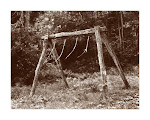I am called reluctantly to the vocation of love. As a married man I am constantly brought up short with my limited supply of grace, compassion and mercy. Clearly more an act than a feeling, the love that would die for another is beyond my imagination and only reveals glimpses of its radiance in the day to day “small self dying” necessary to be in relationship and community.
The therapeutic narrative offered to Western enlightened folks such as myself has been both liberating and spiritually infantilizing. By being foundationally directed to see my parents as the core creators of both my joy & pain, I inordinately reflect upon my journey as one of discovery through retrieval of my original self. The thrust of this narrative is that I am deeper and truer than anyone including my parents could have ever seen thus I must allow my earliest years of “harm and help” to be sacralized and offered up to heaven or a therapist. I wonder if this therapeutic bent towards the familial bond as central to my spiritual map has inadvertently stifled and stunted my truest calling – and that is my vocation towards and into love.
Great stories have staying power. They remain in our corporate memory, are retold by our leaders and spiritual story tellers and over time begin to find their way into the motivations and intentions of entire countries and continents. Christianity is one story and Christ is one man whose life, although short in terms of years, has had profound impact on how civilianization’s engage the very nature of this life. What seems unduly odd to me, however, is the centrality of love and sacrifice in the life and message of Christ and its seeming replacement by lesser truths. If, as most Christian theologians and scholars would purport that God is love, why do we so relegate that truth to sentimentality or obscurity in light of other lesser impactful postures God is purported to display?
Christ’s life finds much of its controversy when we move beyond belief in some historical insight and engagements over who He said he was, or who His disciples said He was towards our findings as to what He did. It was what Christ did that got Him killed. It was what Christ did that led Him to offer His message up to the riff raff edges of a Palestinian countryside. It was His seeming obeisance to a Kingdom unseen and yet pregnant with divine expectancy that threatened Roman authorities and ultimately His assassinators, the professionally religious of His day.
I mentioned to my wife that being an expert or scholar in or on love is something I have yet to see offered or displayed in Christian circles. On some level, this is as it should be, but this absence of conversations and engagements with the challenge of love is not born of humility. The absence is due in truth to the shear idiocy of claiming such a status. Anyone claiming such depth and understanding of love and its outworking places upon themselves the onus to act lovingly. There is lies the rub. I can talk of love but those closest to me will surely weigh in with the pretense or outright exaggerations I might offer up as insight when indeed all my observations and insights are borrowed from mentors and guides. I am consistently unloving.
Maybe this is how it should be, that my real life silences my arrogant assertions. Talk of love should be presented sacramentally as an offering before one’s community, marriage, or intimate relationships. This allows this “talk of love” to be covered with preemptive confession and amends. As I sit within in heart shot of Christ’s most profound calling “to lay down my life for a brother” I am more than humbled. I am tempted to put away all “talk” of faith and spirituality and spend the day looking outside my head and heart to the otherness of the world. I need to sit in that revelation of my own preoccupation even when I am offering it up a spiritual insight. Love, real love takes me away from my proclivities, my giftedness, my career and ambitions, my need to be desired or praised, worshipped or even considered wise and godly. It is all ”not love.”
What makes the acts of love so seldom offered up in teaching or preaching is love’s call to see the other as one that is “not you.” When the soul is a project and spirituality is some kind of evolutionary 2nd life, I now take the very presence of others as fodder for my own spiritual friendship profile. I see them as pawns in my virtual narrative, in my induced self projected godlike persona I offer to the world as my audience. There is something potentially demonically insidious in the hidden intentions of spiritual writing and leadership. Freud, whether feared, respected, or derided, none the less lobs a heat seeking device into the heart of deceit most leaders call God’s voice and reveal just how “needy” the human ego is regardless of one’s age, history, and supposed insights. I am constantly seeing life through the narrow lens of my false self and unless and until my truest calling towards love is reintroduced or held before me as not merely a truth to adhere to or admire but the truest representation of what my very being was created out of and is being called towards, the spiritual talk becomes chattering and navel gazing. I was born in love and will return. These are truths to big to know as I have been taught to know.
Thomas Merton talks constantly about the false self. I have found much Christian doctrine and teaching (in evangelical circles at any rate) on the self and its deleterious energies as lacking in insight and daily outworking in regards to the specter of the false self Merton so powerfully raises in his writing. The oft quoted mantra of “dying to self” sounds good during corporate times of testimony and small group disclosure but in the thick of the daily grind where those closest to me need love, my love, someone’s love, I am often not only an empty vessel but a deterrent to the vocation of love’s calling.
It is love that causes me to sacrifice a present comfort for something the future beckons. It is love that sits heavy on my shoulders when the guilt of some betrayal or deceit peers into my heart of hearts. It is love that demands the truth be the mother tongue of my voice in my marriage friendships and community. It is love that deems conflicts and the distance hurtful speech cause in community to be a priority when we meet for worship. The suffering I do for love is the walking out of my truest calling. To agonize over my choices and their impact on those I love informs me daily of my need for something divine to intercede. When chaos appears to destroy whatever love and trust I have experienced to date, love calls me to empty myself of those presumptions or memories as fond as they may be in live right now in the dying of self I am prone to avoid.
If indeed my truest vocation is that of love, it makes profound sense to my deepest most persistent longings. I desire to belong, to be known, to be heard, to be held passionately as a gift and to be seen as a reflection of a more radiant glory. To that end I submit my self to the school of love and it’s vocational setting – my life.





